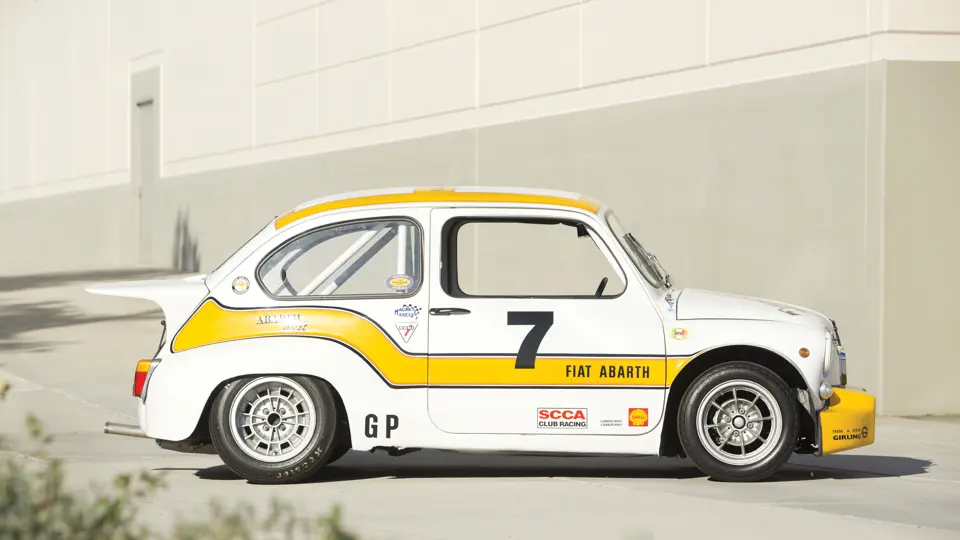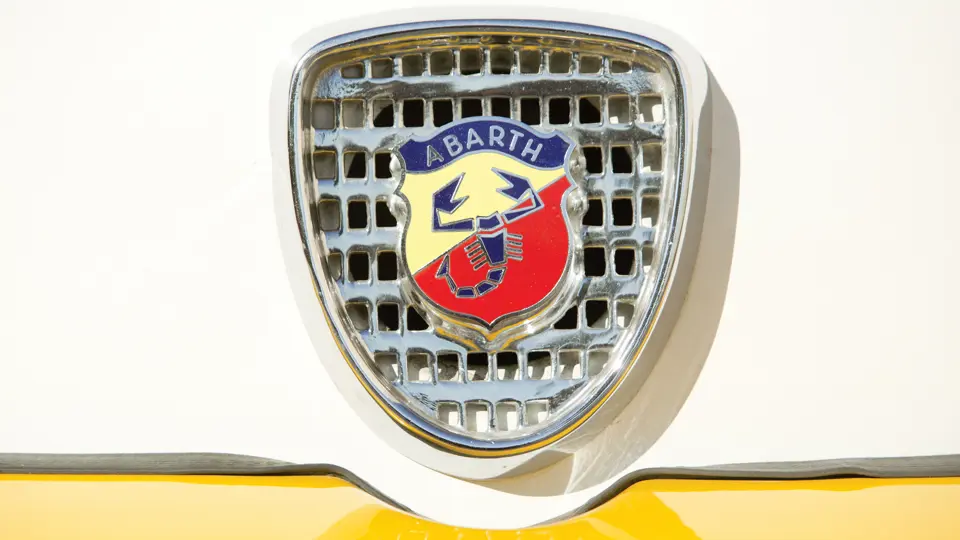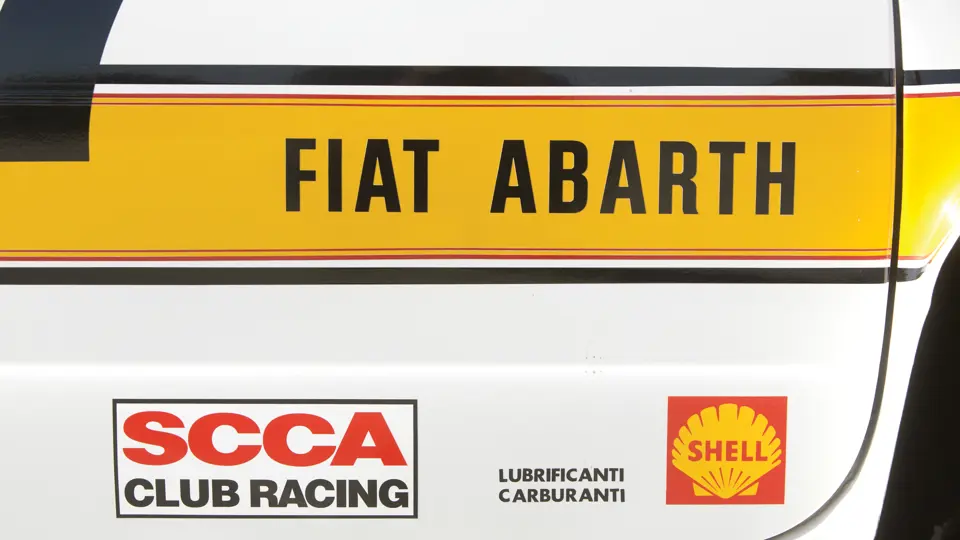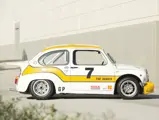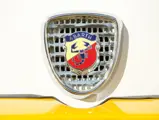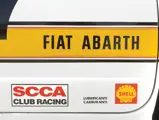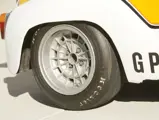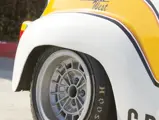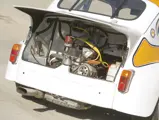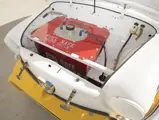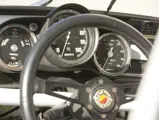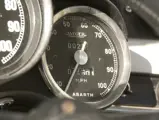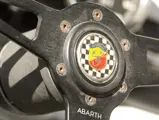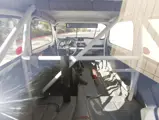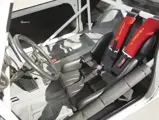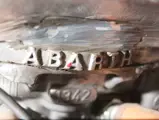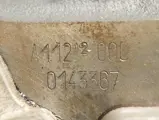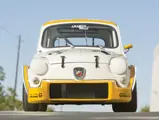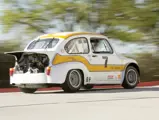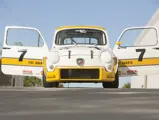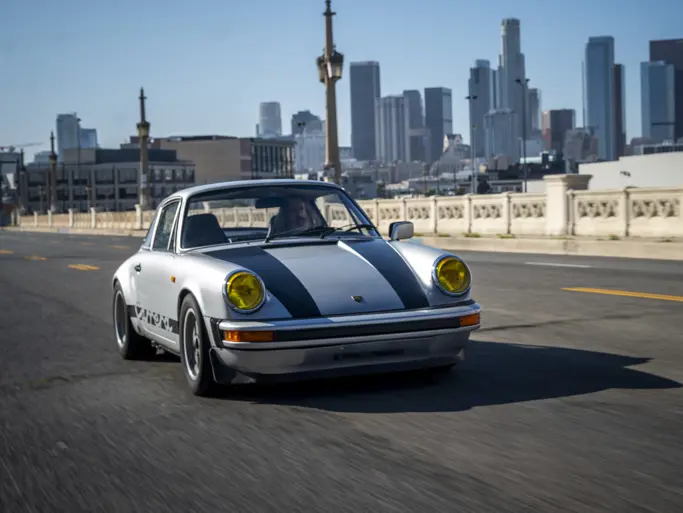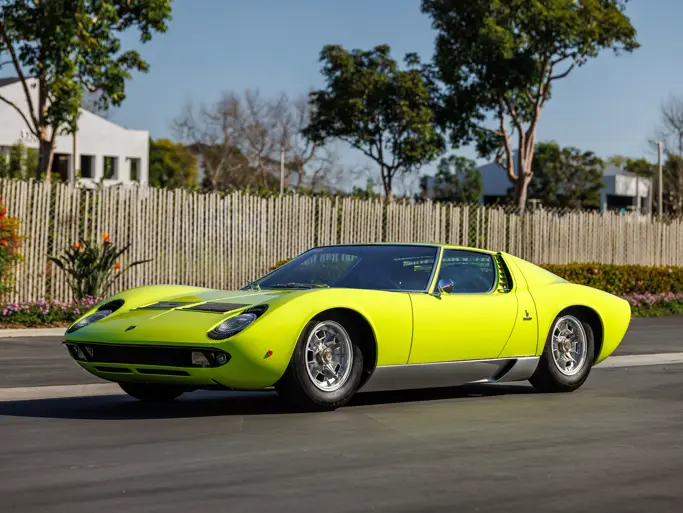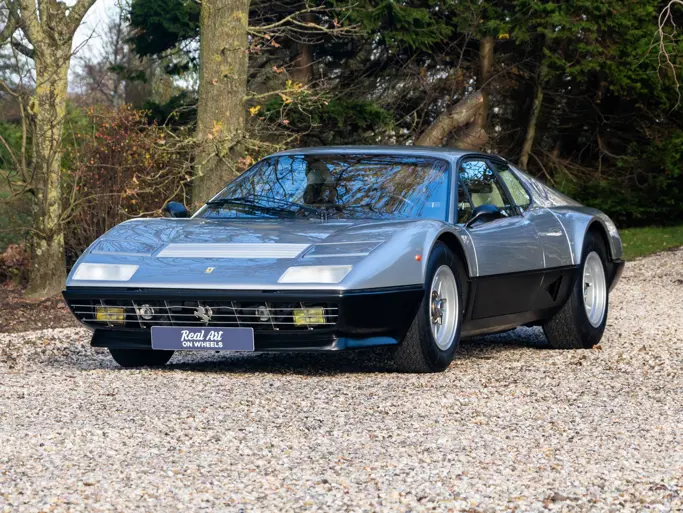110 bhp, 1,050 cc OHV Abarth inline four, single Weber 36 twin-throat carburetor with intake stacks, five-speed Abarth close-ratio transmission, front double A-arms, coil springs, hydraulic shocks, and stabilizer bar, rear semi-trailing arms, coil springs, telescopic hydraulic shocks, stabilizer bar, and four-wheel hydraulic disc brakes. Wheelbase: 78.7 in.
The humble Fiat 600D people’s car hardly seems like a racing machine, but in Italy, anything with an engine was a race car, and the light, tunable Fiat made a perfect platform for Abarth’s magic touch.
Abarth started building 600D-based performance cars in 1960 with the 850 Turismo Competizione, or TC. Its enlarged 847-cubic centimeter engine produced 52 horsepower and a 92 mph top speed, and it included a stiffened suspension, disc brakes, and other improvements. A successor, the 850TC Nürburgring Corsa, added more power, and it debuted a front-mounted radiator and raised rear decklid that came to be synonymous with Fiat-Abarths.
The Fiat-Abarth 850s were highly successful, from Monte Carlo to the SCCA. They were so successful that Abarth turned to the larger 903-cubic centimeter engine for the Fiat 850 and began building cars to compete with the ubiquitous Mini. These Fiat-Abarth 1000s came in a wide variety to suit different race requirements, and Abarth built multiple series with differing specifications between 1962 and 1970.
This Fiat, chassis 1667, was found and recovered from a back yard in Paso Robles, California. In the recovery, many of the original parts remained intact, while others were sourced and acquired to complete the Abarth’s restoration. With the help of Abarth’s former East Coat distributor (and Abarth Guide author) Al Cosentino, who had been trained by Carlo Abarth himself, the car was treated to a sympathetic two-year restoration, and it soon became a fixture at VARA and HSR races on the West Coast and Southwest, as well as a competitor in the SCCA Solo G-Prepared. This is a little ironic, as SCCA considered the 1000TC Berlina Corsa to be too dominant, and they kicked the model out of competition in 1971. In 2012, the car received a new 1,050-cubic centimeter Abarth engine that has not yet been on the race track, but it is said to deliver 110 horsepower at the 8,000 rpm redline, which is right at the limit for a naturally aspirated 1000. For racing enhancements, an Abarth five-speed with a limited slip, an oil cooler, Koni shocks, Girling disc brakes, and fitted Campagnolo Abarth wheels were added to complete the Abarth's performance package. A detailed logbook that documents its race history accompanies the vehicle.
Having appeared at notable events over the last few years, this striking Abarth racer, in its yellow and white livery, attracts admirers in any context, be it race or show. But the most fun comes on the track, discovering how this car performs and showing why Fiat-Abarth 1000s have been such intense competitors for over 50 years.




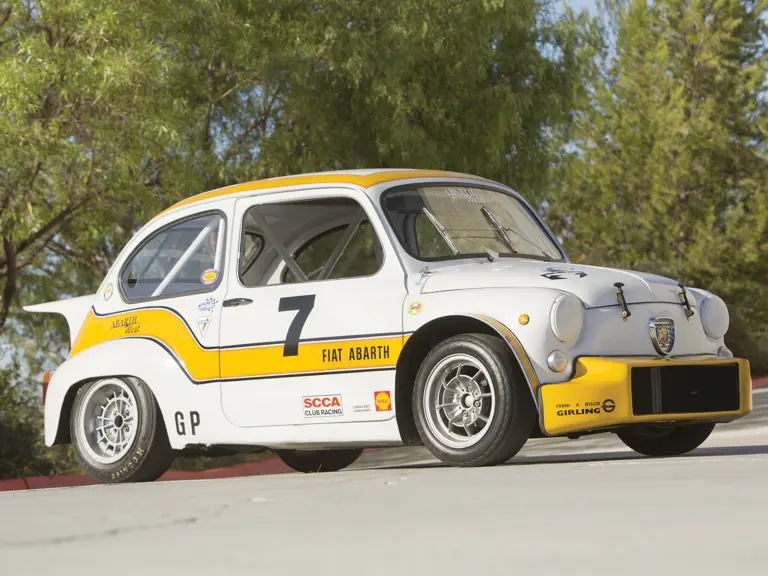
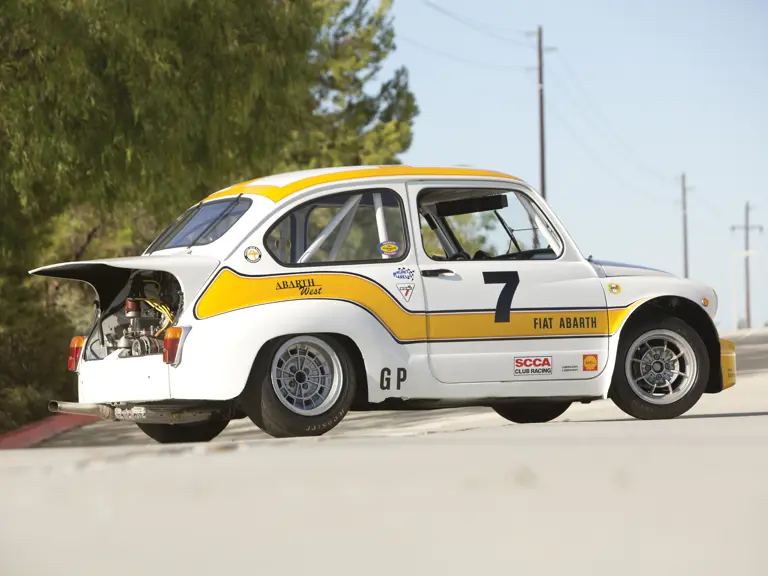
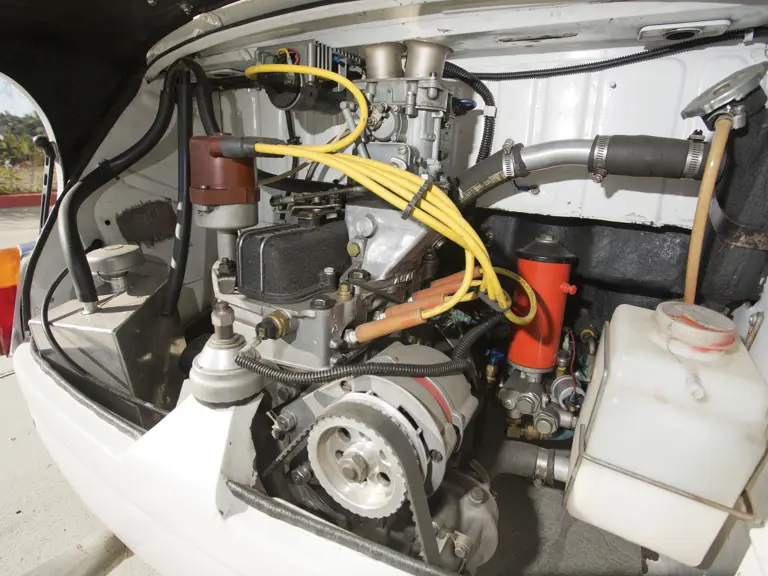
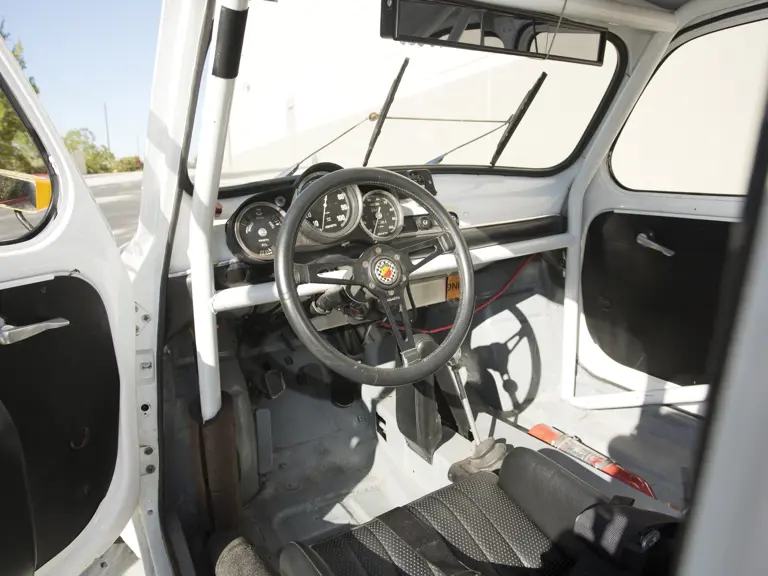
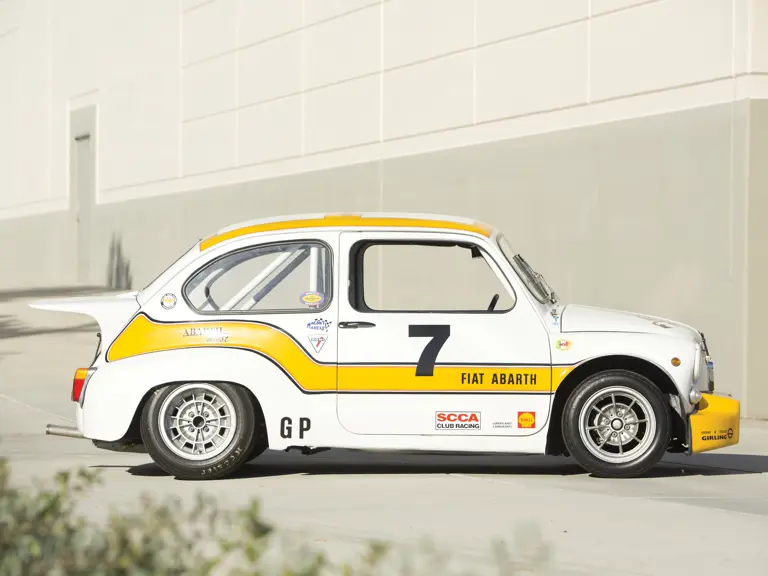
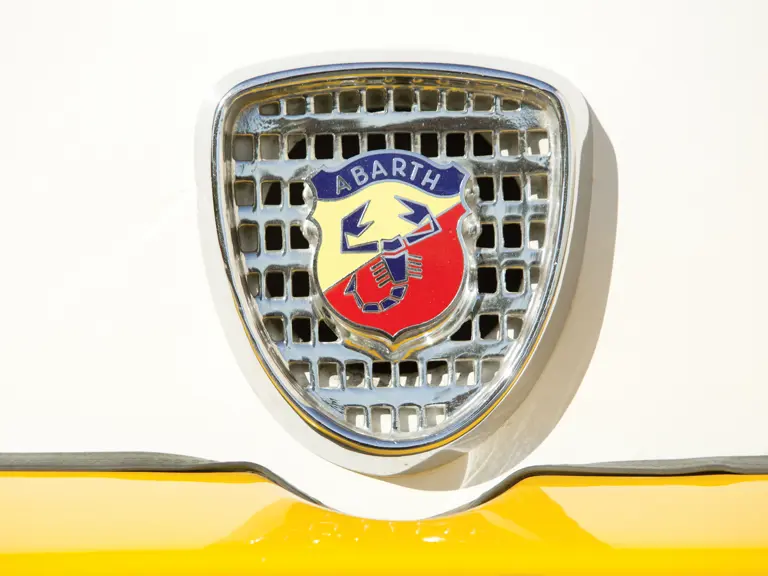
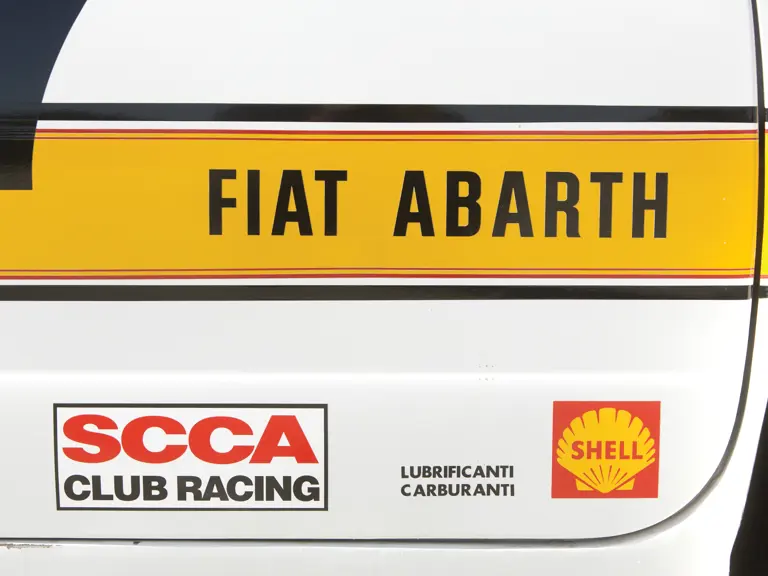
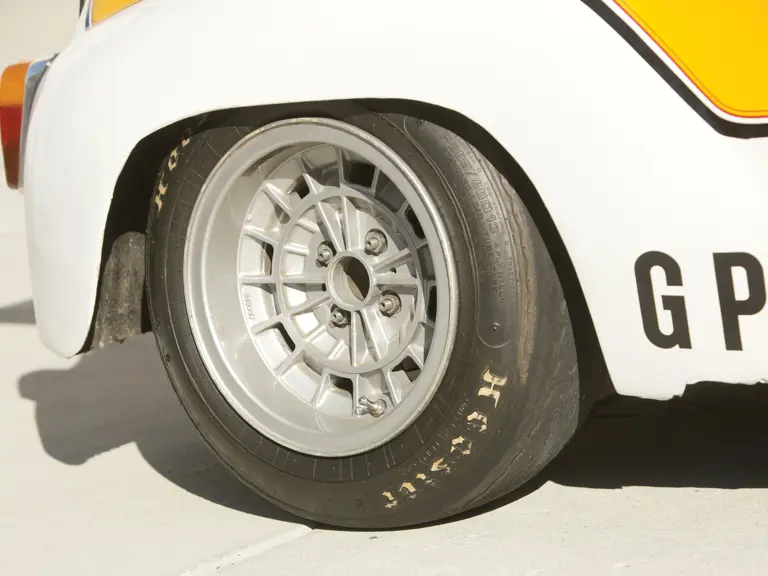
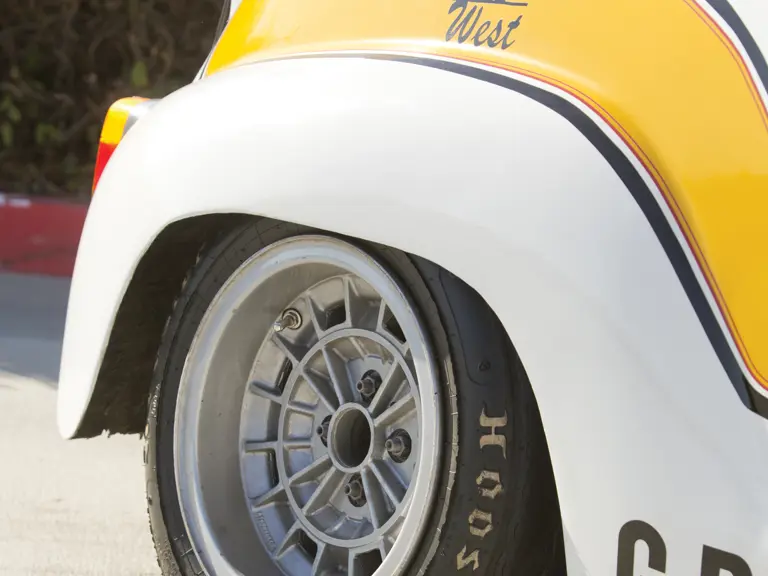
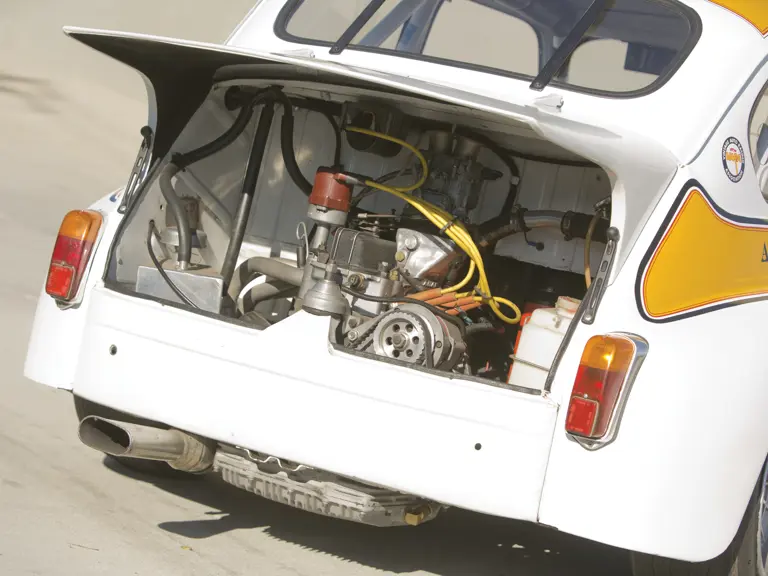
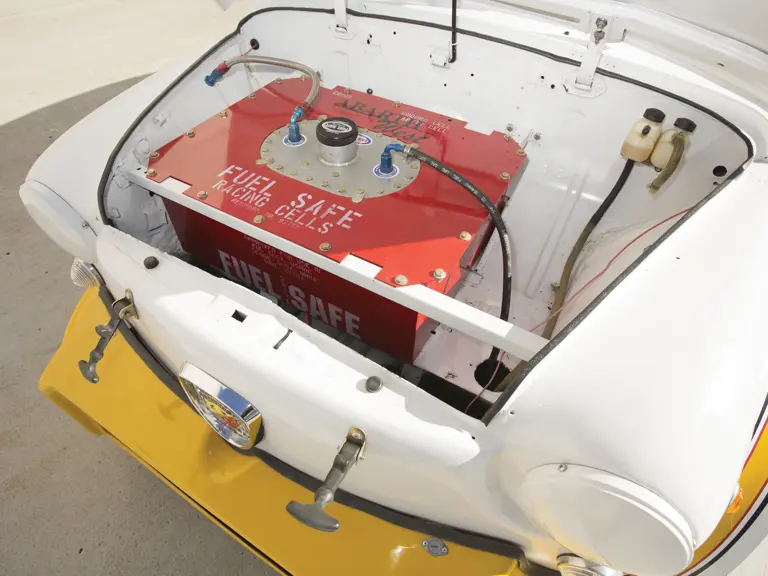
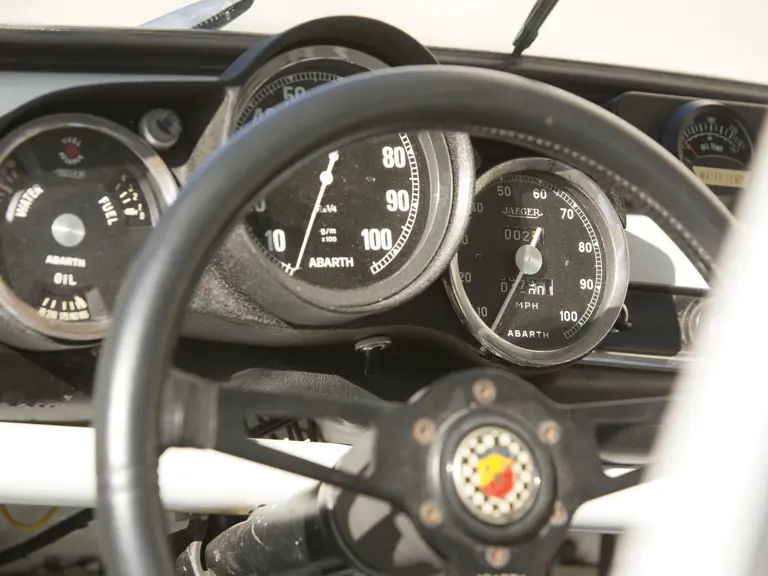
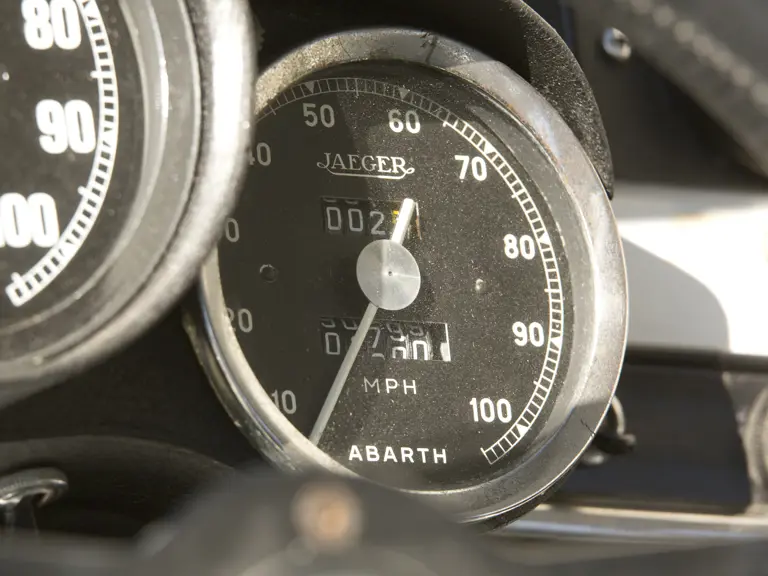
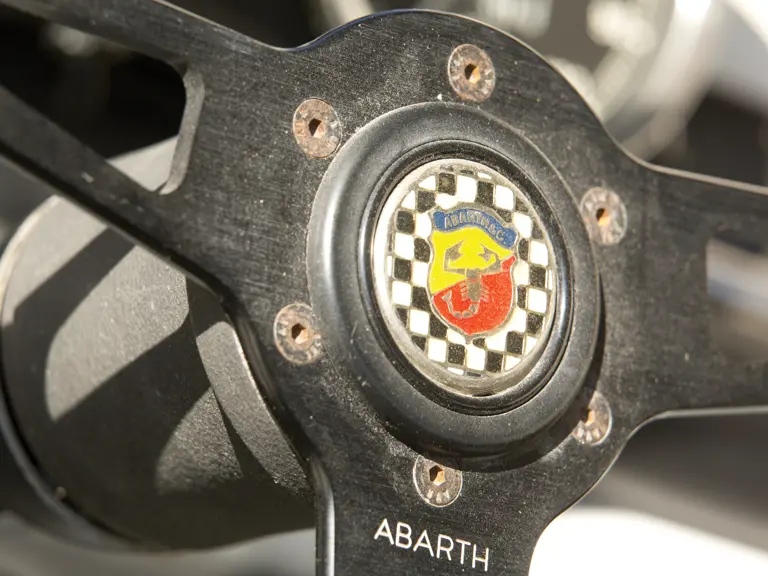
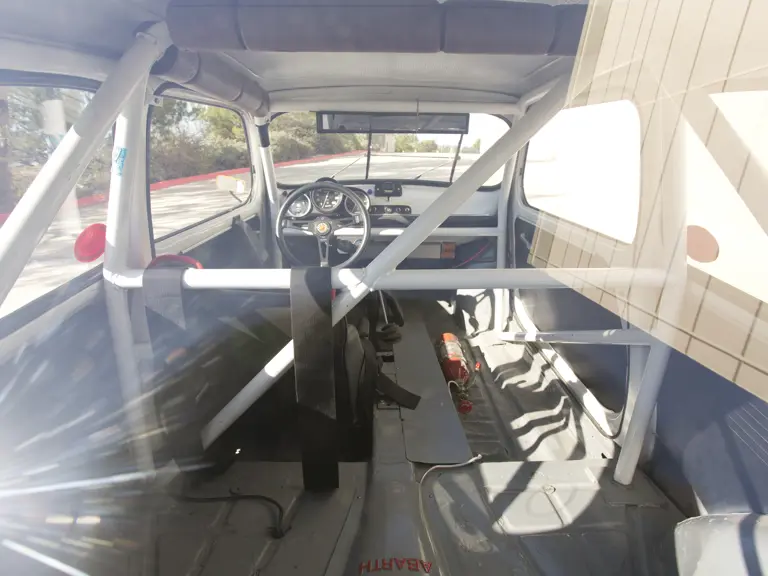
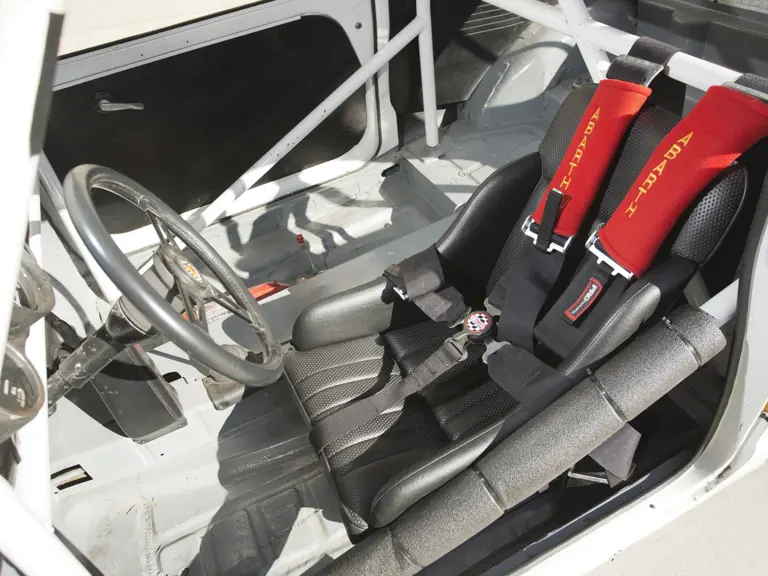
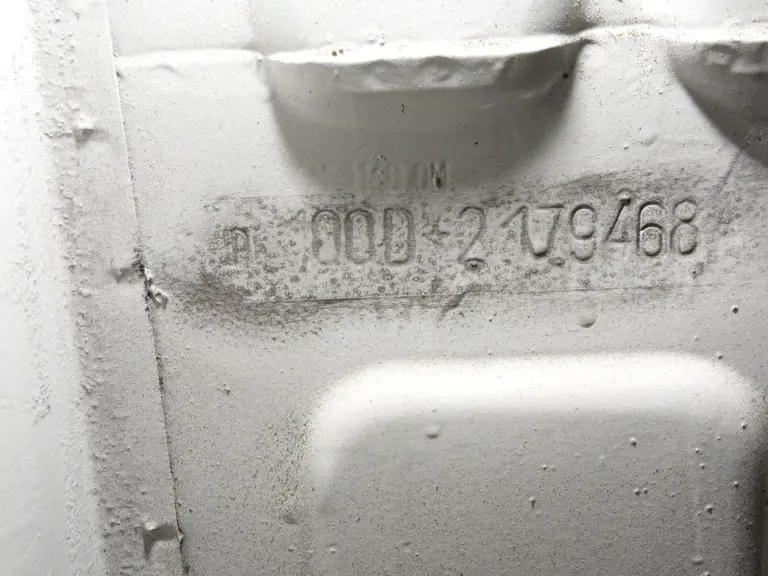
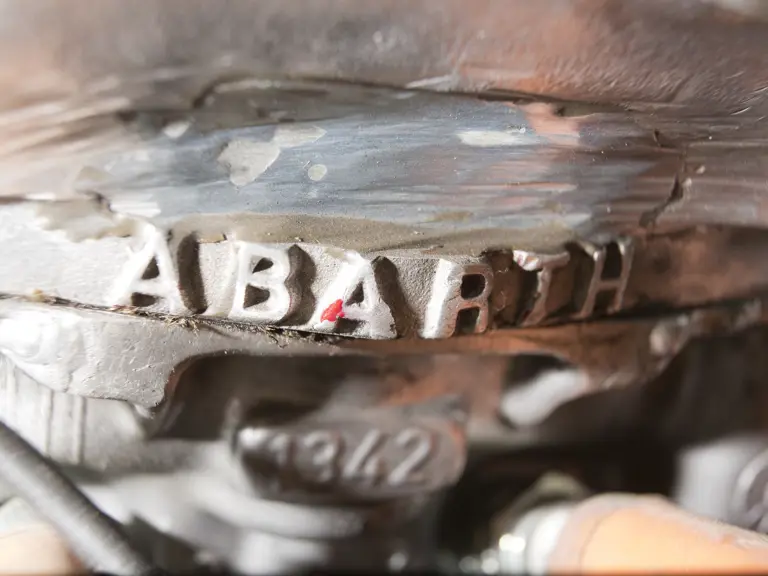
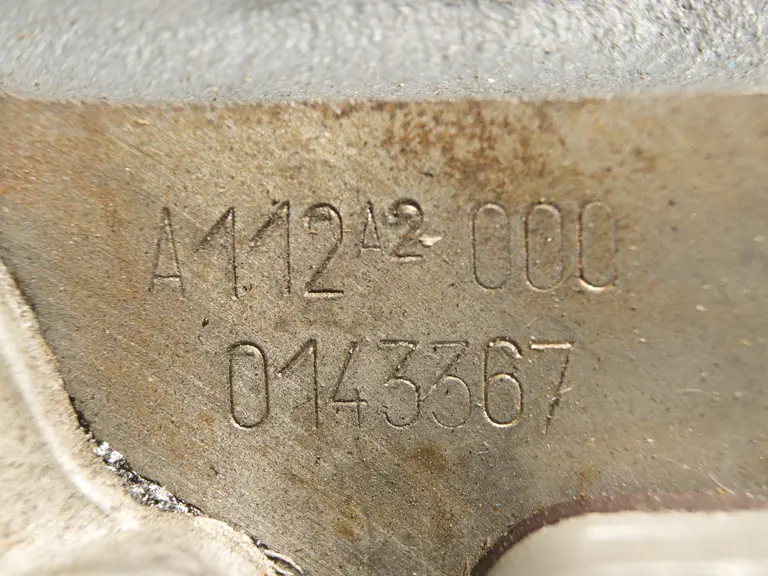
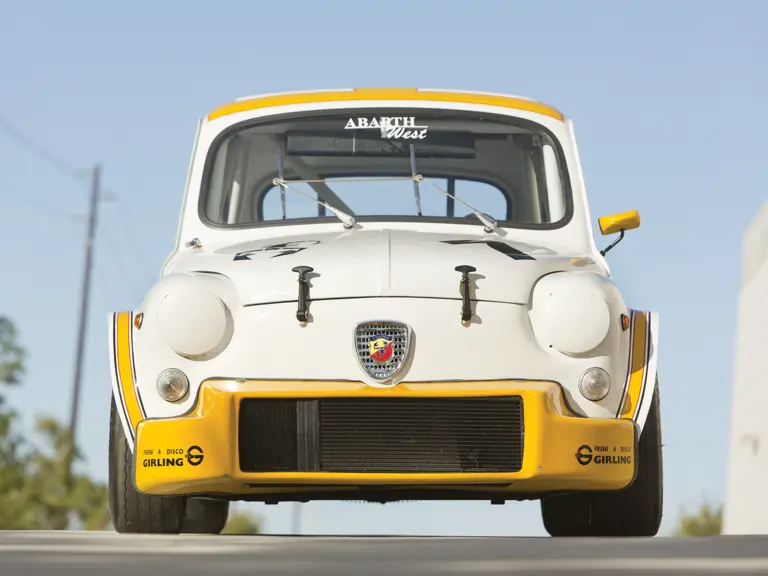
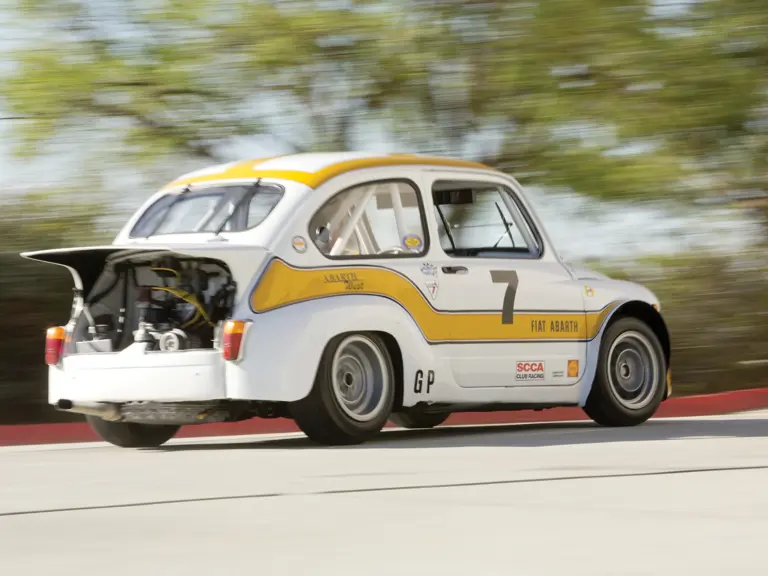
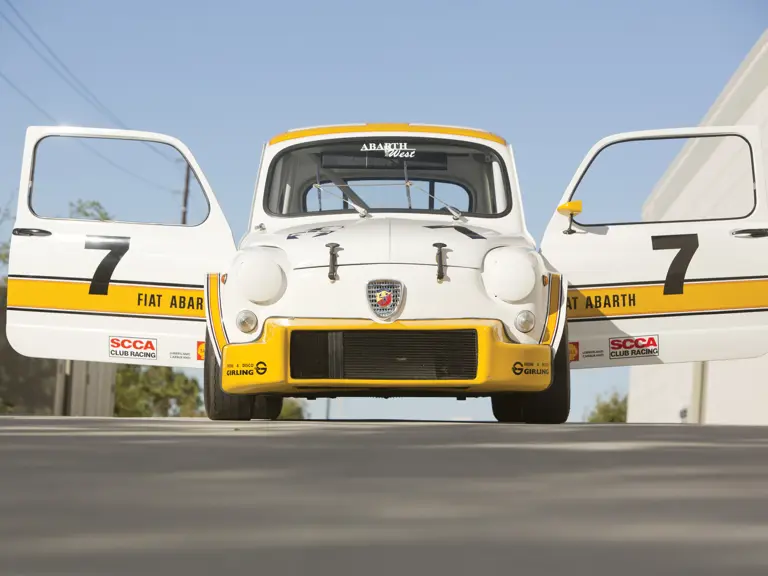
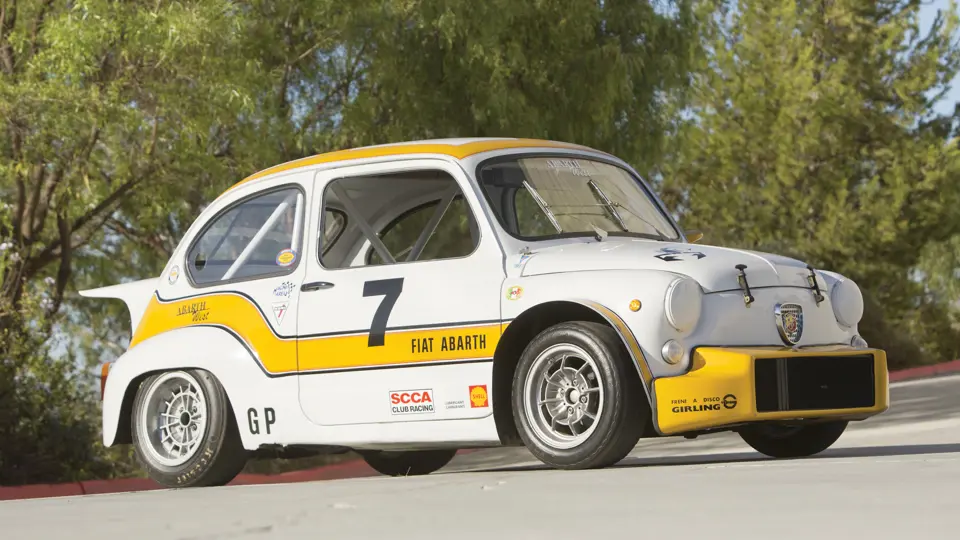
 | Phoenix, Arizona
| Phoenix, Arizona
